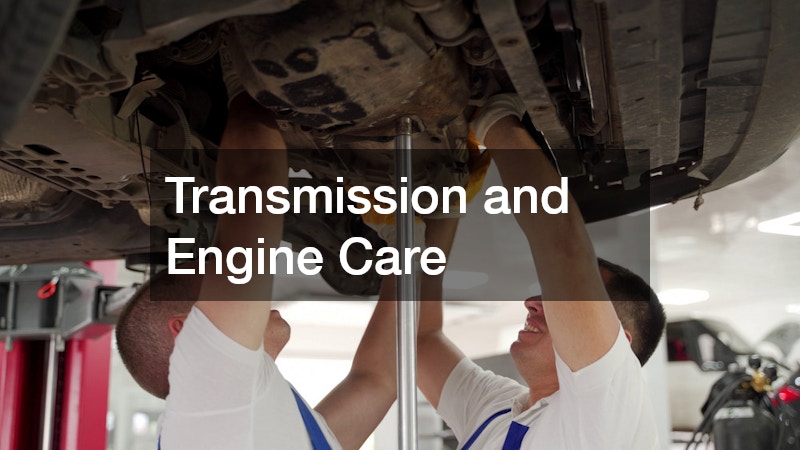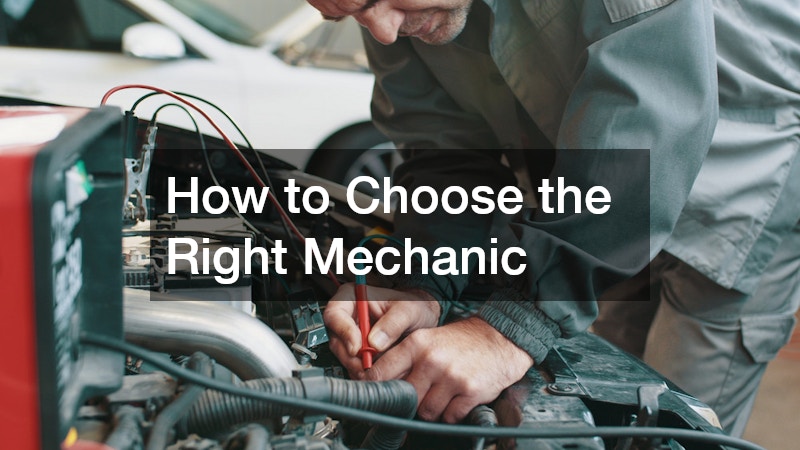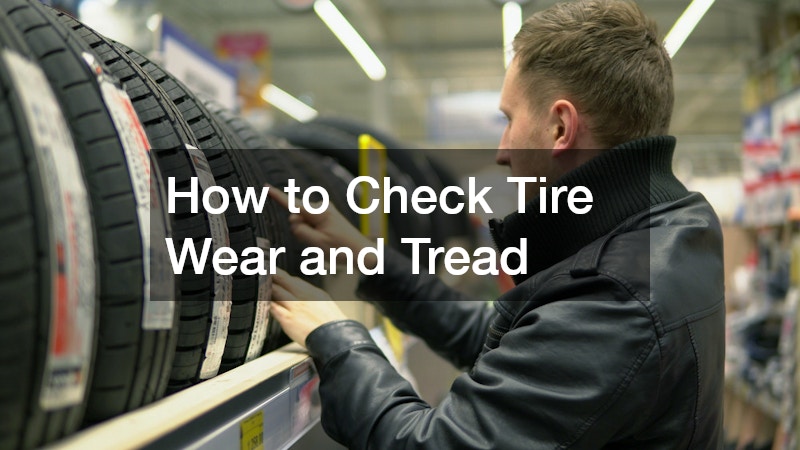Owning a car involves more than just the initial purchase—it requires ongoing attention to ensure the vehicle stays reliable and performs at its best. Keeping a vehicle in optimal condition means staying on top of regular maintenance, addressing issues promptly, and understanding how its core systems function. From drivetrain components to basic wear-and-tear parts, knowing what your car needs can help prevent unexpected breakdowns and extend its overall lifespan.
This article will explore key elements of vehicle care, including how to select quality service providers, which maintenance routines are most essential, and why having the right level of coverage matters for long-term peace of mind.
Knowing how your car operates—and what it needs to stay in top shape—empowers you to make smarter decisions. Routine inspections, fluid level monitoring, and attention to safety-related features are all part of responsible ownership. Whether you’re comparing coverage options or considering aesthetic upgrades, our goal is to give you practical information that helps you care for your vehicle with confidence.
As automotive technology evolves, staying informed and proactive becomes increasingly important. Regular upkeep and a solid understanding of your responsibilities as an owner not only make for a safer ride but can also lead to long-term savings. Let’s dive into the essentials and help you become a more knowledgeable, prepared car owner.

Transmission and Engine Care
When it comes to maintaining your car, understanding automatic transmissions plays a crucial role. The transmission system is responsible for transferring power from the engine to the wheels, enabling smooth acceleration. Regularly checking and replacing the transmission fluid is essential to prevent wear and tear on these components and to ensure that your vehicle performs optimally over time.
In addition to transmission care, engine maintenance cannot be overlooked. An engine is the heart of your vehicle, and neglecting its needs can lead to severe issues, including engine replacement. Regular oil changes, air filter replacements, and coolant checks are all part of a comprehensive maintenance regimen that can help catch problems before they escalate into costly repairs.
Furthermore, age and mileage can significantly affect both your car’s automatic transmissions and its engine. As components age, even with regular maintenance, they may need to be replaced or serviced. By staying ahead of these issues, you will not only enhance the performance of your car but also extend its lifespan.
When to Replace Your Engine
Identifying when it’s time for engine replacement can be challenging, but there are key indicators to watch for. If your car is frequently overheating or producing unusual noises, it’s essential to consult an auto repair shop. Any signs of smoke from the exhaust or a loss of power could also signal that the engine is failing and may soon need to be replaced.
Moreover, age plays a significant role in determining whether you need an engine replacement. The wear and tear on older engines can lead to decreased efficiency and increased emissions, which might push you towards making a costly decision. Assessing your engine’s performance and making informed choices based on its condition can save you from potential headaches in the future.
Finally, considering the value of your car is crucial when contemplating an engine replacement. If repairs or replacements exceed your car’s worth, it may be more financially viable to explore alternatives. Discussions with a knowledgeable collision repair expert or mechanic can guide you in deciding if a new engine is a wise investment based on your car’s overall condition.
Collision Prevention and Repair
Prevention is always better than cure, especially when it comes to collisions. Understanding the factors that contribute to accidents, such as distractions and weather conditions, can help you take proactive measures. Regularly checking your tire pressure, using your headlights, and keeping a safe distance from vehicles ahead can significantly reduce your chances of a collision.
In the event of an accident, knowing how to proceed is fundamental. A collision repair expert can assess the damage, provide estimates, and facilitate the repair process. Having a trusted auto repair shop on standby can make a difficult situation much easier to navigate.
Post-collision, it’s crucial to ensure that your vehicle has returned to a safe operational state. Whether it requires bodywork, frame realignment, or part replacements, prompt repairs are necessary to prevent further complications. Maintaining auto body paint and exterior protection after repairs not only enhances aesthetics but also serves as a barrier against rust and corrosion.

How to Choose the Right Mechanic
Choosing the right mechanic can significantly impact the health of your vehicle. Look for an auto repair shop that comes highly recommended, whether through word of mouth or online reviews. It’s vital that the shop has a good reputation for honesty and quality service, ensuring that you receive the best work for the money spent.
Furthermore, a good mechanic should have transparent communication about the services they provide. They should explain the issues clearly and suggest necessary repairs, including maintenance for automatic transmissions or engine issues. Building a trusting relationship with your mechanic can lead to better service and advice, helping you maintain your car in top condition.
Lastly, don’t hesitate to ask about certifications and experience. A qualified mechanic will often have certain credentials, workshops, or training certifications that reflect their expertise. An informed choice will ensure that your car receives the best possible care, from routine maintenance to more extensive repairs.
Keep Your Exterior Protected
Protecting your car’s exterior is essential for maintaining its aesthetics and value. Regular washing and waxing prevent dirt buildup and scratches, while high-quality auto body paint can offer a protective layer against the elements. Additionally, applying paint sealants can enhance the longevity of your car’s finish.
Moreover, consider protective coatings that can defend against UV rays, acid rain, and even minor dings. These coatings, when applied correctly, can significantly reduce the chances of rust and fading. Investing in maintenance, such as proper detailing and occasional repainting, benefits your car in the long run.
Finally, if you’re looking to change the color of your car or refresh its look, professional auto body paint services can provide a flawless result. A fresh coat not only improves appearances but also shields the underlying materials from the harsh environment. Prioritizing your car’s exterior protection is both a practical and aesthetic consideration that all car owners should recognize.
How to Protect Your Car’s Interior
Just as you care for your car’s exterior, the interior deserves equal attention and protection. Consider investing in auto glass tinting services to shield your vehicle from harmful UV rays and provide privacy. Window tinting can also reduce the temperature inside your car, making it a more comfortable environment.
Additionally, using seat covers and floor mats can protect against spills, stains, and wear. These protective layers can preserve the appearance of your upholstery and flooring, extending the life of your car’s interior. Regular cleaning, such as vacuuming and conditioning materials like leather, will also keep the interior fresh and appealing.
Finally, avoid leaving valuable items inside your car to prevent theft and damage. A tidy and organized interior not only enhances your driving experience but also controls clutter and possible distractions. By focusing on protection and cleanliness, you can ensure that your car’s interior looks great and remains functional.

How to Check Tire Wear and Tread
Monitoring tire wear and tread is a vital part of maintaining vehicle safety. Checking your tires regularly can help identify wear patterns that indicate misalignment or improper inflation. Using the penny test is a simple method to gauge tread depth; if you can see the top of Lincoln’s head, it’s time for new tires.
Additionally, feel for any changes in ride quality or handling, as these could signal tire issues. Vibration or pulling can indicate unbalanced tires or other underlying problems. Ensuring your tires are in good condition enhances not only safety but also fuel efficiency.
Don’t forget that regular tire service is essential for longevity. Rotating your tires can prevent uneven wear and extend their lifespan, giving you more miles for your money. Investing in timely tire checks and replacements is a crucial element in ensuring a safe riding experience.
Why Regular Tire Maintenance Matters
Regular tire maintenance can significantly affect your vehicle’s performance and safety. Worn or improperly inflated tires can lead to decreased traction and increased stopping distances, which can be dangerous. Maintaining optimal tire pressure and tread depth not only enhances safety but also improves fuel efficiency.
Moreover, regular tire service, including rotations and alignments, can prolong the life of your tires. Uneven wear from neglected service can lead to premature replacements, costing you more in the long run. By putting in the effort to maintain your tires, you can save money and enhance the integrity of your vehicle.
Finally, understanding the types of tires needed for your driving conditions is important. Seasonal tires provide better performance in specific conditions, such as winter or summer, and may require swapping twice a year. Making informed decisions about tire types and maintenance practices will keep your car in optimal shape, ultimately enhancing safety on the road.
How to Find the Best Coverage at a Lower Cost
Finding the right insurance coverage can often feel daunting, but it doesn’t have to be. Start by comparing quotes from various providers to identify affordable car insurance rates that fit your budget and needs. Many insurers now offer online tools that simplify the comparison process, allowing you to see coverage options side by side.
Moreover, consider bundling your car insurance with other policies, such as homeowners or renters insurance, to take advantage of potential discounts. Keep in mind that understanding your coverage is essential; it’s worth reviewing your policy details to ensure you’re not overpaying for coverage that doesn’t meet your requirements.
Finally, look for discounts that may apply specifically to you, such as good driver discounts or those for vehicles equipped with certain safety features. Regularly reviewing and updating your policy can reflect any life changes that may impact your rates, ensuring you receive the best possible coverage at an affordable price. Making informed decisions about your car insurance is key to maintaining financial stability while ensuring adequate protection.

Understanding What Your Auto Policy Really Covers
Understanding the details of your car insurance policy is crucial for every car owner. Policies can differ significantly in terms of coverage types, from liability to collision and comprehensive coverage. Knowing what is included—and excluded—can help you make informed decisions during an accident or emergency.
Be aware that liability coverage is often mandated by law, but additional protections can come at an added cost, such as coverage for damage to your vehicle or for uninsured motorists. Consult an insurance professional to understand the implications of each type of coverage and how they protect you and your investment. Knowing the ins and outs of your policy empowers you to use it effectively and can even help you navigate the claims process more confidently.
Ultimately, the goal is to ensure that your car insurance coverage aligns with your needs and budget. Frequently reassessing your coverage can uncover potential savings or adjustments that can be made as your circumstances change. A clear understanding of your auto policy will ensure peace of mind while driving, knowing you have appropriate and adequate protection in place.
The importance of maintaining your vehicle cannot be overstated, as it affects both performance and safety. From understanding transmission care to recognizing when an engine replacement might be necessary, being an informed car owner is crucial for effective vehicle management. Regular checks, establishing relationships with auto repair shops, and taking preventative measures can save time, money, and stress in the long run.
Moreover, understanding the nuances of auto insurance and finding affordable rates can keep your car protected without breaking the bank. With the right information, you can take advantage of vital services, such as auto glass tinting or tire service, to enhance both aesthetics and functionality. Taking responsibility for your car’s upkeep is an investment in longevity—a strategy that pays off in peace of mind.
By integrating these tips into your routine, you can develop a comprehensive maintenance strategy that keeps your vehicle running smoothly for years to come. Embrace the knowledge offered in this article, and apply it to your vehicle’s care, ensuring you enjoy a safer and more efficient driving experience. Regularly reviewing your practices and policies will keep you ahead of any issues that might arise, solidifying your place as a responsible car owner.
